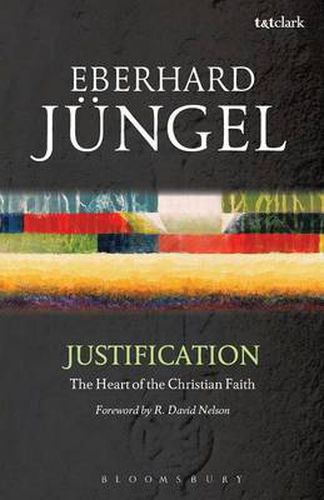Readings Newsletter
Become a Readings Member to make your shopping experience even easier.
Sign in or sign up for free!
You’re not far away from qualifying for FREE standard shipping within Australia
You’ve qualified for FREE standard shipping within Australia
The cart is loading…






This significant work, precipitated by the Lutheran-Roman Catholic Joint Declaration on the doctrine of justification, represents Eberhard Jungel’s most sustained theological writing for some time. Jungel examines the role of justification in Christian faith - and emphasises its central importance. He traces the history of the concept of ‘justice’ in Greek thought, and of the Old Testament parallel concept ‘righteousness’. He then moves on to a consideration of the righteousness of God in its Christian context, and in particular to God’s righteousness in Christ. A major contribution to theological discussion is found in his fresh and fearless treatment of the unfashionable topic of sin. Throughout the work, Jungel constantly interacts with the great Catholic and Protestant thinkers, his skill as a theologian matched by his insight as a philosopher.
$9.00 standard shipping within Australia
FREE standard shipping within Australia for orders over $100.00
Express & International shipping calculated at checkout
Stock availability can be subject to change without notice. We recommend calling the shop or contacting our online team to check availability of low stock items. Please see our Shopping Online page for more details.
This significant work, precipitated by the Lutheran-Roman Catholic Joint Declaration on the doctrine of justification, represents Eberhard Jungel’s most sustained theological writing for some time. Jungel examines the role of justification in Christian faith - and emphasises its central importance. He traces the history of the concept of ‘justice’ in Greek thought, and of the Old Testament parallel concept ‘righteousness’. He then moves on to a consideration of the righteousness of God in its Christian context, and in particular to God’s righteousness in Christ. A major contribution to theological discussion is found in his fresh and fearless treatment of the unfashionable topic of sin. Throughout the work, Jungel constantly interacts with the great Catholic and Protestant thinkers, his skill as a theologian matched by his insight as a philosopher.